 W
WA 3D selfie is a 3D-printed scale replica of a person or their face. These three-dimensional selfies are also known as 3D portraits, 3D figurines, 3D-printed figurines, mini-me figurines and miniature statues. In 2014 a first 3D printed bust of a President, Barack Obama, was made. 3D-digital-imaging specialists used handheld 3D scanners to create an accurate representation of the President.
 W
WNarcissistic personality disorder (NPD) or megalomania is a personality disorder characterized by a long-term pattern of exaggerated feelings of self-importance, an excessive craving for admiration, and struggles with empathy. People with NPD often spend much time daydreaming about achieving power and success, and perceive injustice for failing to do so. This is a pattern of obsessive thoughts and unstable sense of identity, often to cope with a sub-par real life. People with the diagnosis in recent years have spoken out about its stigma in media, and possible links to abusive situations and childhood trauma. Such narcissistic behavior typically begins by early adulthood, and occurs across a broad range of situations.
 W
WNarcissism is the pursuit of gratification from vanity or egotistic admiration of one's idealised self-image and attributes. The term originated from Greek mythology, where a young man named Narcissus fell in love with his own image reflected in a pool of water. Narcissism or pathological self-absorption was first identified as a disorder in 1898 by Havelock Ellis and featured in subsequent psychological models, e.g. in Freud's On Narcissism (1914). The American Psychiatric Association has listed the classification narcissistic personality disorder in its Diagnostic and Statistical Manual of Mental Disorders (DSM) since 1968, drawing on the historical concept of megalomania.
 W
WApathy is a lack of feeling, emotion, interest, or concern about something. It is a state of indifference, or the suppression of emotions such as concern, excitement, motivation, or passion. An apathetic individual has an absence of interest in or concern about emotional, social, spiritual, philosophical, virtual, or physical life and the world.
 W
WShmuel "Sam" Vaknin is an Israeli writer and professor of psychology. He is the author of Malignant Self Love: Narcissism Revisited (1999), was the last editor-in-chief of the now-defunct political news website Global Politician, and runs a private website about narcissistic personality disorder (NPD). He has also postulated a theory on chronons and time asymmetry.
 W
WNarcissism is the pursuit of gratification from vanity or egotistic admiration of one's idealised self-image and attributes. The term originated from Greek mythology, where a young man named Narcissus fell in love with his own image reflected in a pool of water. Narcissism or pathological self-absorption was first identified as a disorder in 1898 by Havelock Ellis and featured in subsequent psychological models, e.g. in Freud's On Narcissism (1914). The American Psychiatric Association has listed the classification narcissistic personality disorder in its Diagnostic and Statistical Manual of Mental Disorders (DSM) since 1968, drawing on the historical concept of megalomania.
 W
WConspicuous consumption is a term used to describe and explain the consumer practice of purchasing or using goods of a higher quality or in greater quantity than might be considered necessary in practical terms. More specifically, it refers to the spending of money on or the acquiring of luxury goods and services in order to publically display the economic power of one's income or accumulated wealth. To the conspicuous consumer, such a public display of discretionary economic power is a means of either attaining or maintaining a given social status.
 W
WConspicuous leisure is a concept introduced by the American economist and sociologist Thorstein Veblen, in The Theory of the Leisure Class (1899). Conspicuous or visible leisure is engaged in for the sake of displaying and attaining social status. The concept comprises those forms of leisure that seem to be fully motivated by social factors, such as taking long vacations to exotic places and bringing souvenirs back. Conspicuous leisure is observed in all societies where stratification exists. Conspicuous leisure contributes to the glorification of non-productivity, thus validating the behavior of the most powerful classes and leading the lower classes to admire rather than revile the leisure class. This aids the leisure class in retaining their status and material position. Veblen's more well-known concept of "conspicuous consumption" is employed when non-productivity can be more effectively demonstrated through lavish spending.
 W
WNarcissism is the pursuit of gratification from vanity or egotistic admiration of one's idealised self-image and attributes. The term originated from Greek mythology, where a young man named Narcissus fell in love with his own image reflected in a pool of water. Narcissism or pathological self-absorption was first identified as a disorder in 1898 by Havelock Ellis and featured in subsequent psychological models, e.g. in Freud's On Narcissism (1914). The American Psychiatric Association has listed the classification narcissistic personality disorder in its Diagnostic and Statistical Manual of Mental Disorders (DSM) since 1968, drawing on the historical concept of megalomania.
 W
WNarcissism is the pursuit of gratification from vanity or egotistic admiration of one's idealised self-image and attributes. The term originated from Greek mythology, where a young man named Narcissus fell in love with his own image reflected in a pool of water. Narcissism or pathological self-absorption was first identified as a disorder in 1898 by Havelock Ellis and featured in subsequent psychological models, e.g. in Freud's On Narcissism (1914). The American Psychiatric Association has listed the classification narcissistic personality disorder in its Diagnostic and Statistical Manual of Mental Disorders (DSM) since 1968, drawing on the historical concept of megalomania.
 W
WA dandy, historically, is a man who places particular importance upon physical appearance, refined language, and leisurely hobbies, pursued with the appearance of nonchalance in a cult of self. A dandy could be a self-made man who strove to imitate an aristocratic lifestyle despite coming from a middle-class background, especially in late 18th- and early 19th-century Britain.
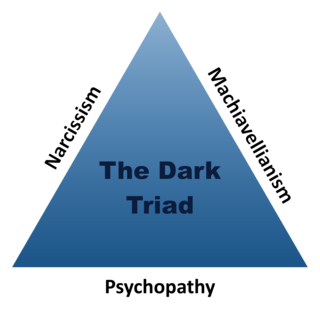 W
WIn psychology, the dark triad comprises the personality traits of narcissism, machiavellianism, and psychopathy. They are called "dark" because of their malevolent qualities.
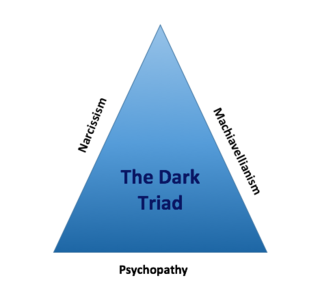 W
WThe Dark Triad Dirty Dozen (DTDD) is a brief 12-item personality inventory that simultaneously assesses the three socially maladaptive, dark triad traits: Machiavellianism, narcissism, and psychopathy. It was developed by Jonason and Webster in 2010 based on already existing, longer measures of each dark triad trait.
 W
WNarcissism is the pursuit of gratification from vanity or egotistic admiration of one's idealised self-image and attributes. The term originated from Greek mythology, where a young man named Narcissus fell in love with his own image reflected in a pool of water. Narcissism or pathological self-absorption was first identified as a disorder in 1898 by Havelock Ellis and featured in subsequent psychological models, e.g. in Freud's On Narcissism (1914). The American Psychiatric Association has listed the classification narcissistic personality disorder in its Diagnostic and Statistical Manual of Mental Disorders (DSM) since 1968, drawing on the historical concept of megalomania.
 W
WDivide and rule, or divide and conquer, in politics and sociology is gaining and maintaining power by breaking up larger concentrations of power into pieces that individually have less power than the one implementing the strategy.
 W
WEgocentrism is the inability to differentiate between self and other. More specifically, it is the inability to accurately assume or understand any perspective other than one's own.
 W
WElitism is the belief or notion that individuals who form an elite—a select group of people perceived as having an intrinsic quality, high intellect, wealth, special skills, or experience—are more likely to be constructive to society as a whole, and therefore deserve influence or authority greater than that of others. The term elitism may be used to describe a situation in which power is concentrated in the hands of a limited number of people. Oppositions of elitism include egalitarianism, populism, and the political theory of pluralism.
 W
WOn 9 January 2008, 22-year-old Sophie Kate Elliott was stabbed to death by ex-boyfriend Clayton Robert Weatherston, in Dunedin, New Zealand. The crime and trial were covered extensively in the news media, and contributed to the government abolishing the partial defence of provocation in cases of murder.
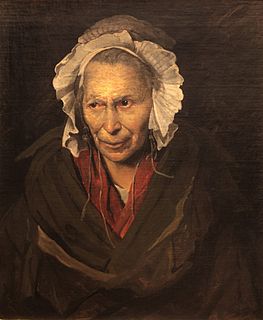 W
WEnvy is an emotion which occurs when a person lacks another's superior quality, achievement, or possession and either desires it or wishes that the other lacked it.
 W
WExaggeration is the representation of something as more extreme or dramatic than it really is. Exaggeration may occur intentionally or unintentionally. The exaggerator has been a familiar figure in Western culture since at least Aristotle's discussion of the alazon: 'the boaster is regarded as one who pretends to have distinguished qualities which he possesses either not at all or to a lesser degree than he pretends...exaggerating'.
 W
WNarcissism is the pursuit of gratification from vanity or egotistic admiration of one's idealised self-image and attributes. The term originated from Greek mythology, where a young man named Narcissus fell in love with his own image reflected in a pool of water. Narcissism or pathological self-absorption was first identified as a disorder in 1898 by Havelock Ellis and featured in subsequent psychological models, e.g. in Freud's On Narcissism (1914). The American Psychiatric Association has listed the classification narcissistic personality disorder in its Diagnostic and Statistical Manual of Mental Disorders (DSM) since 1968, drawing on the historical concept of megalomania.
 W
WIn psychology, fantasy is a broad range of mental experiences, mediated by the faculty of imagination in the human brain, and marked by an expression of certain desires through vivid mental imagery. Fantasies are typically associated with scenarios that are statistically implausible or impossible in reality.
 W
WNarcissism is the pursuit of gratification from vanity or egotistic admiration of one's idealised self-image and attributes. The term originated from Greek mythology, where a young man named Narcissus fell in love with his own image reflected in a pool of water. Narcissism or pathological self-absorption was first identified as a disorder in 1898 by Havelock Ellis and featured in subsequent psychological models, e.g. in Freud's On Narcissism (1914). The American Psychiatric Association has listed the classification narcissistic personality disorder in its Diagnostic and Statistical Manual of Mental Disorders (DSM) since 1968, drawing on the historical concept of megalomania.
 W
WHubris, or less frequently, hybris, describes a personality quality of extreme or excessive pride or dangerous overconfidence, often in combination with arrogance. The term "arrogance" comes from the Latin adrogare, meaning to feel that one has a right to demand certain attitudes and behaviors from other people. To "arrogate" means "to claim or seize without justification... To make undue claims to having", or "to claim or seize without right... to ascribe or attribute without reason". The term "pretension" is also associated with the term hubris, but is not synonymous with hubris. According to studies, hubris, arrogance and pretension are related to the need for victory instead of reconciliation, such as "friendly" groups might promote. Hubris is usually perceived as a characteristic of an individual rather than a group, although the group the offender belongs to may suffer collateral consequences from wrongful acts. Hubris often indicates a loss of contact with reality and an overestimation of one's own competence, accomplishments or capabilities. The adjectival form of the noun hubris is "hubristic" or "hybristic".
 W
WManaroopa is a 2019 Indian psychological crime thriller film based on the philosophy of Existentialism in Kannada language. The film also addresses the subject of Nihilism and Narcissism. The film is written and directed by Kiran Hegde. Produced by Kiran Hegde as well under the banner of CMCR movies, the music of movie is given by Sarvanaa and cinematography is done by Govinda Raj. Dialogues of this movie are given by Mahabala Seethalabhavi and Kiran Hegde. 90% of the movie has been shot in and around the hinterland of Sirsi and Siddapur forests of Western Ghats of Karnataka.
 W
WNarcissism is the pursuit of gratification from vanity or egotistic admiration of one's idealised self-image and attributes. The term originated from Greek mythology, where a young man named Narcissus fell in love with his own image reflected in a pool of water. Narcissism or pathological self-absorption was first identified as a disorder in 1898 by Havelock Ellis and featured in subsequent psychological models, e.g. in Freud's On Narcissism (1914). The American Psychiatric Association has listed the classification narcissistic personality disorder in its Diagnostic and Statistical Manual of Mental Disorders (DSM) since 1968, drawing on the historical concept of megalomania.
 W
WMetrosexual is a portmanteau of metropolitan and heterosexual, coined in 1994 describing a man who is especially meticulous about his grooming and appearance, typically spending a significant amount of time and money on shopping as part of this.
 W
WNarcissism is the pursuit of gratification from vanity or egotistic admiration of one's idealised self-image and attributes. The term originated from Greek mythology, where a young man named Narcissus fell in love with his own image reflected in a pool of water. Narcissism or pathological self-absorption was first identified as a disorder in 1898 by Havelock Ellis and featured in subsequent psychological models, e.g. in Freud's On Narcissism (1914). The American Psychiatric Association has listed the classification narcissistic personality disorder in its Diagnostic and Statistical Manual of Mental Disorders (DSM) since 1968, drawing on the historical concept of megalomania.
 W
WThe narcissism of small differences is the thesis that communities with adjoining territories and close relationships are especially likely to engage in feuds and mutual ridicule because of hypersensitivity to details of differentiation. The term was coined by Sigmund Freud in 1917, based on the earlier work of British anthropologist Ernest Crawley. In language differing only slightly from current psychoanalytic terminology, Crawley declared that each individual is separated from others by a taboo of personal isolation, a narcissism of minor differences.
 W
WNarcissistic personality disorder (NPD) or megalomania is a personality disorder characterized by a long-term pattern of exaggerated feelings of self-importance, an excessive craving for admiration, and struggles with empathy. People with NPD often spend much time daydreaming about achieving power and success, and perceive injustice for failing to do so. This is a pattern of obsessive thoughts and unstable sense of identity, often to cope with a sub-par real life. People with the diagnosis in recent years have spoken out about its stigma in media, and possible links to abusive situations and childhood trauma. Such narcissistic behavior typically begins by early adulthood, and occurs across a broad range of situations.
 W
WIn Greek mythology, Narcissus was a hunter from Thespiae in Boeotia who was known for his beauty. According to Tzetzes, he rejected all romantic advances, eventually falling in love with his own reflection in a pool of water, staring at it for the remainder of his life. After he died, in his place sprouted a flower bearing his name.
 W
WThe Oedipus complex is a concept of psychoanalytic theory. Sigmund Freud introduced the concept in his Interpretation of Dreams (1899) and coined the expression in his A Special Type of Choice of Object made by Men (1910). The positive Oedipus complex refers to a child's unconscious sexual desire for the opposite-sex parent and hatred for the same-sex parent. The negative Oedipus complex refers to a child's unconscious sexual desire for the same-sex parent and hatred for the opposite-sex parent. Freud considered that the child's identification with the same-sex parent is the successful outcome of the complex and that unsuccessful outcome of the complex might lead to neurosis, and pedophilia.
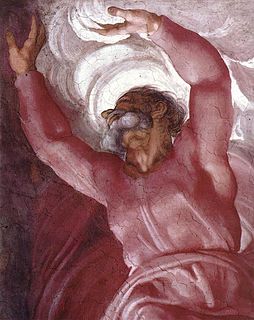 W
WOmnipotence is the quality of having unlimited power and potential. Monotheistic religions generally attribute omnipotence only to the deity of their faith. In the monotheistic philosophies of Abrahamic religions, omnipotence is often listed as one of a deity's characteristics among many, including omniscience, omnipresence, and omnibenevolence. The presence of all these properties in a single entity has given rise to considerable theological debate, prominently including the problem of theodicy, the question of why such a deity would permit the manifestation of evil. It is accepted in philosophy and science that omnipotence can never be effectively understood.
 W
WNarcissistic personality disorder (NPD) or megalomania is a personality disorder characterized by a long-term pattern of exaggerated feelings of self-importance, an excessive craving for admiration, and struggles with empathy. People with NPD often spend much time daydreaming about achieving power and success, and perceive injustice for failing to do so. This is a pattern of obsessive thoughts and unstable sense of identity, often to cope with a sub-par real life. People with the diagnosis in recent years have spoken out about its stigma in media, and possible links to abusive situations and childhood trauma. Such narcissistic behavior typically begins by early adulthood, and occurs across a broad range of situations.
 W
WNarcissistic personality disorder (NPD) or megalomania is a personality disorder characterized by a long-term pattern of exaggerated feelings of self-importance, an excessive craving for admiration, and struggles with empathy. People with NPD often spend much time daydreaming about achieving power and success, and perceive injustice for failing to do so. This is a pattern of obsessive thoughts and unstable sense of identity, often to cope with a sub-par real life. People with the diagnosis in recent years have spoken out about its stigma in media, and possible links to abusive situations and childhood trauma. Such narcissistic behavior typically begins by early adulthood, and occurs across a broad range of situations.
 W
WNarcissism is the pursuit of gratification from vanity or egotistic admiration of one's idealised self-image and attributes. The term originated from Greek mythology, where a young man named Narcissus fell in love with his own image reflected in a pool of water. Narcissism or pathological self-absorption was first identified as a disorder in 1898 by Havelock Ellis and featured in subsequent psychological models, e.g. in Freud's On Narcissism (1914). The American Psychiatric Association has listed the classification narcissistic personality disorder in its Diagnostic and Statistical Manual of Mental Disorders (DSM) since 1968, drawing on the historical concept of megalomania.
 W
WA pissing contest, or pissing match, is a game in which participants compete to see who can urinate the highest, the farthest, for the longest, or the most accurately. Although the practice is often associated with adolescent boys, women have been known to play the game, and there are literary depictions of adults competing in it. Since the 1940s the term has been used as a slang idiomatic phrase describing contests that are "futile or purposeless", especially if waged in a "conspicuously aggressive manner". As a metaphor it is used figuratively to characterise futile ego-driven battling in a pejorative or facetious manner that is often considered vulgar. The image of two people urinating on each other has also been offered as a source of the phrase, perhaps implying that such a contest is not merely pointless but mutually harmful.
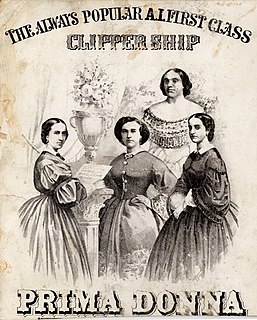 W
WIn opera or commedia dell'arte, a prima donna is the leading female singer in the company, the person to whom the prime roles would be given.
 W
WNarcissism is the pursuit of gratification from vanity or egotistic admiration of one's idealised self-image and attributes. The term originated from Greek mythology, where a young man named Narcissus fell in love with his own image reflected in a pool of water. Narcissism or pathological self-absorption was first identified as a disorder in 1898 by Havelock Ellis and featured in subsequent psychological models, e.g. in Freud's On Narcissism (1914). The American Psychiatric Association has listed the classification narcissistic personality disorder in its Diagnostic and Statistical Manual of Mental Disorders (DSM) since 1968, drawing on the historical concept of megalomania.
 W
WPsychological projection is a defense mechanism in which the ego defends itself against unconscious impulses or qualities by denying their existence in themselves and attributing them to others. For example, a bully may project his or her own feelings of vulnerability onto the target, or a person who is confused may project feelings of confusion and inadequacy onto other people.
 W
WA selfie is a self-portrait photograph, typically taken with a digital camera or smartphone, which may be held in the hand or supported by a selfie stick. Selfies are often shared on social media, via social networking services such as Facebook, Twitter, Snapchat, and Instagram.
 W
WNarcissism is the pursuit of gratification from vanity or egotistic admiration of one's idealised self-image and attributes. The term originated from Greek mythology, where a young man named Narcissus fell in love with his own image reflected in a pool of water. Narcissism or pathological self-absorption was first identified as a disorder in 1898 by Havelock Ellis and featured in subsequent psychological models, e.g. in Freud's On Narcissism (1914). The American Psychiatric Association has listed the classification narcissistic personality disorder in its Diagnostic and Statistical Manual of Mental Disorders (DSM) since 1968, drawing on the historical concept of megalomania.
 W
WShame is an unpleasant self-conscious emotion typically associated with a negative evaluation of the self; withdrawal motivations; and feelings of distress, exposure, mistrust, powerlessness, and worthlessness.
 W
WSnob is a pejorative term for a person who believes there is a correlation between social status and human worth. Snob also refers to a person who feels superiority over those from lower social classes, education levels, or other social areas. The word snobbery came into use for the first time in England during the 1820s.
 W
WShmuel "Sam" Vaknin is an Israeli writer and professor of psychology. He is the author of Malignant Self Love: Narcissism Revisited (1999), was the last editor-in-chief of the now-defunct political news website Global Politician, and runs a private website about narcissistic personality disorder (NPD). He has also postulated a theory on chronons and time asymmetry.
 W
WA tantrum, temper tantrum, meltdown, fit or hissy fit is an emotional outburst, usually associated with those in emotional distress, that is typically characterized by stubbornness, crying, screaming, violence, defiance, angry ranting, a resistance to attempts at pacification, and, in some cases, hitting and other physically violent behavior. Physical control may be lost; the person may be unable to remain still; and even if the "goal" of the person is met, they may not be calmed. Throwing a temper tantrum can lead to a child being placed in timeout, being grounded, or even getting detention or being suspended from school for older school age children. A tantrum may be expressed in a tirade: a protracted, angry speech.
 W
WA thirst trap is a type of social media post intended to entice viewers sexually. It refers to a user's "thirst", a colloquialism likening sexual frustration to dehydration, implying desperation. Originating around the early 2010s, the meaning has changed over time.
 W
WNarcissistic personality disorder (NPD) or megalomania is a personality disorder characterized by a long-term pattern of exaggerated feelings of self-importance, an excessive craving for admiration, and struggles with empathy. People with NPD often spend much time daydreaming about achieving power and success, and perceive injustice for failing to do so. This is a pattern of obsessive thoughts and unstable sense of identity, often to cope with a sub-par real life. People with the diagnosis in recent years have spoken out about its stigma in media, and possible links to abusive situations and childhood trauma. Such narcissistic behavior typically begins by early adulthood, and occurs across a broad range of situations.
 W
WVanity is the excessive belief in one's own abilities or attractiveness to others. Prior to the 14th century it did not have such narcissistic undertones, and merely meant futility. The related term vainglory is now often seen as an archaic synonym for vanity, but originally meant considering one's own capabilities and that God's help was not needed, i.e. unjustified boasting; although glory is now seen as having a predominantly positive meaning, the Latin term from which it derives, gloria, roughly means boasting, and was often used as a negative criticism.